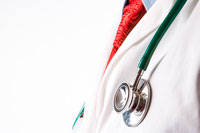By Julie Ellner
Special to the Reporter
^
HIV has been recognized as a contagious viral disease since the 1980s. It can be transmitted through sex, use of dirty needles and at birth from infected mothers. Teens and young adults account for 41 percent of new HIV diagnoses yearly in the US.
For a long time, our only prevention strategy was condom use with sexual transmission. We now have a very effective way to prevent this disease in many at risk people.
Pre-exposure prophylaxis, or PrEP, is a combination of two antiviral medications. Patients taking this one pill daily can reduce sexual transmission of HIV by 99 percent, and dirty needle transmission by 74 percent. Since there is no perfect effective mode of prevention, condoms are always recommended to prevent sexual transmission.
There were 38,739 new cases of HIV diagnosed in the United States in 2017. With PrEP, over 96 percent of those cases could have been prevented, shrinking the death rate of HIV disease in our at-risk population by that same rate.
PrEP is for people who do not have HIV. You should consider PrEP if you fit into any of the following groups:
If your sexual partner is HIV positive and you are not.
If you are a gay or bisexual man who has sex without condoms or have had an STD in the past 6 months.
If you are heterosexual and have sex without condoms with partners with high risk (people who inject drugs or women who have bisexual male partners with unknown HIV status).
If you have injected drugs in the past 6 months and have shared needles.
If your partner is HIV-positive and you are considering pregnancy.
Call your doctor to discuss PrEP if you have any questions. For a map of PrEP Providers in Washington go online to https://fortress.wa.gov/doh/prepgis/index.html. For assistance information, go online to https://www.doh.wa.gov/YouandYourFamily/IllnessandDisease/HIV/Prevention/PrEPDAP.
Julie Ellner MD is a Pediatrician who has been at Mercer Island Pediatrics for 25 years. She is dedicated to the health and wellbeing of all of her current and former patients, with special interests in birth control, STD prevention, mental health, and dermatology.



